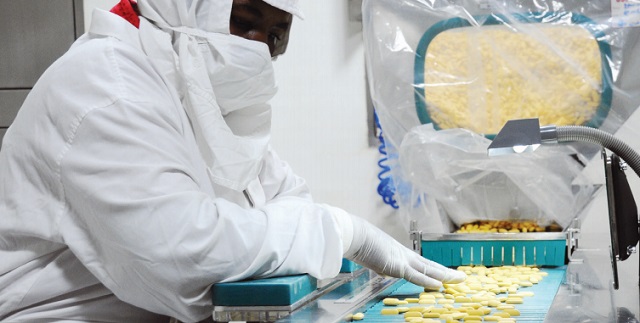The company’s trading price has tumbled to less than Shs100 per share, down from Shs 256.5 IPO level Kampala, Uganda | ISAAC KHISA | Shareholders of drug maker, Cipla Quality Chemicals Ltd will not earn a dividend for the second consecutive year even after reporting a more than 50% drop in annual losses.
Financial results released on Sep.01 shows that Cipla recorded a drop in losses from Shs23.07bn for the year ended March 2020 to Shs 10.5bn for the year ended March 2021 citing non-payments from the Zambian government for the drugs supplied, increase in general and administrative expenses as well increase in finance costs.
The company executives said Cipla has a receivable from Zambia government worth Shs42.9billion which was fully impaired after recording an additional impairment allowance of Shs9.1 billion in the current period.
“GoZ continues to acknowledge this obligation to the company but payment has taken longer than expected leading to a directors’ decision to impair the debt fully,” CEO Nevin Bradford and Chairperson Emanuel Katongole said in a joint statement.
However, the duo said, collection initiatives including government support are continuing and any receipts will improve the results of the period in which they are received.
The company’s general and administrative expenses increased by Shs15.0billion or 41% mainly due to increase in sales promotion efforts to support the aggressive expansion drives, enhancement of the staff medical scheme and normal salary adjustments. The costs were further increased by expenditure on COVID-19 safety related procedures and write off of deferred factory design consultancy costs.
Listed on the Uganda Securities Exchange, Cipla’s share price on the Uganda Securities Exchange is currently trading at an average of Shs100 down from Shs 256.5 per share during the IPO in 2018.
However, sales grew by 48% from Shs192.7billion in FY 2019-20 to Shs284.5billion in FY2020-21 owed to new customers in the export segment, increase in sales to multilateral agencies and contract manufacturing as well as entry into the private market distribution.
The gross profit margin remained stable at 19% in both years, though, antiretroviral (ARV) sales had a higher profit margin of 74% of the total sales in FY2020-21 compared to 61% in FY2019-20. The executives said gross profit margin was diluted by an increase in the lower margin contract manufacturing business.
“The company continues to compete on price and win new business leading to reduced margins but increased sales and gross profit,” the duo said.
The good news, however, is that […]
